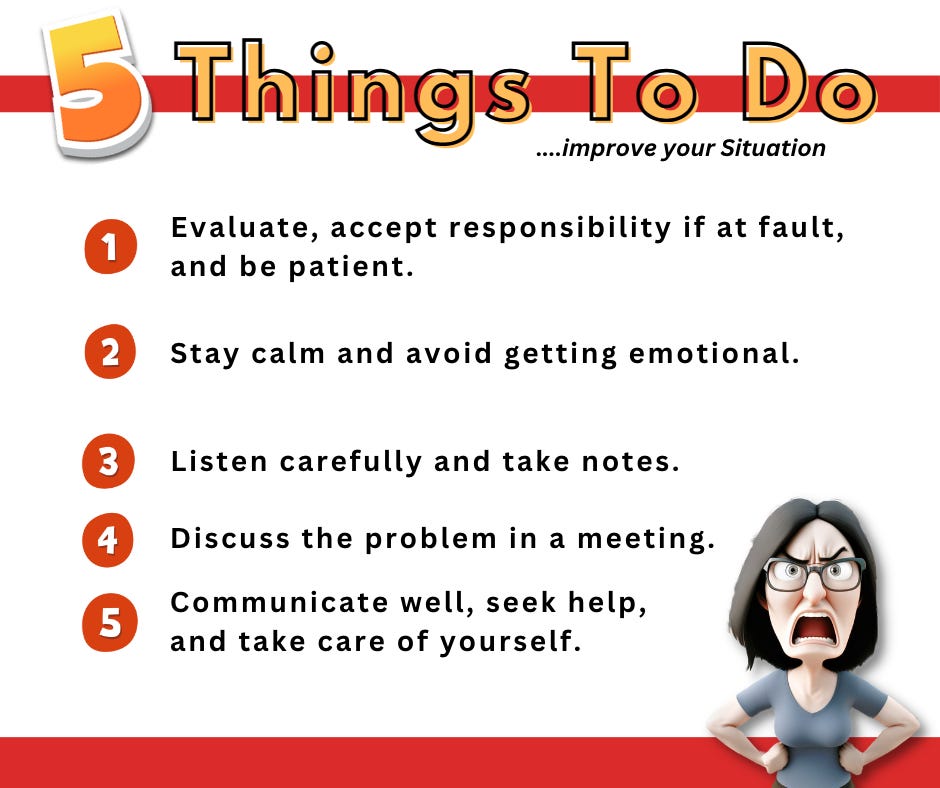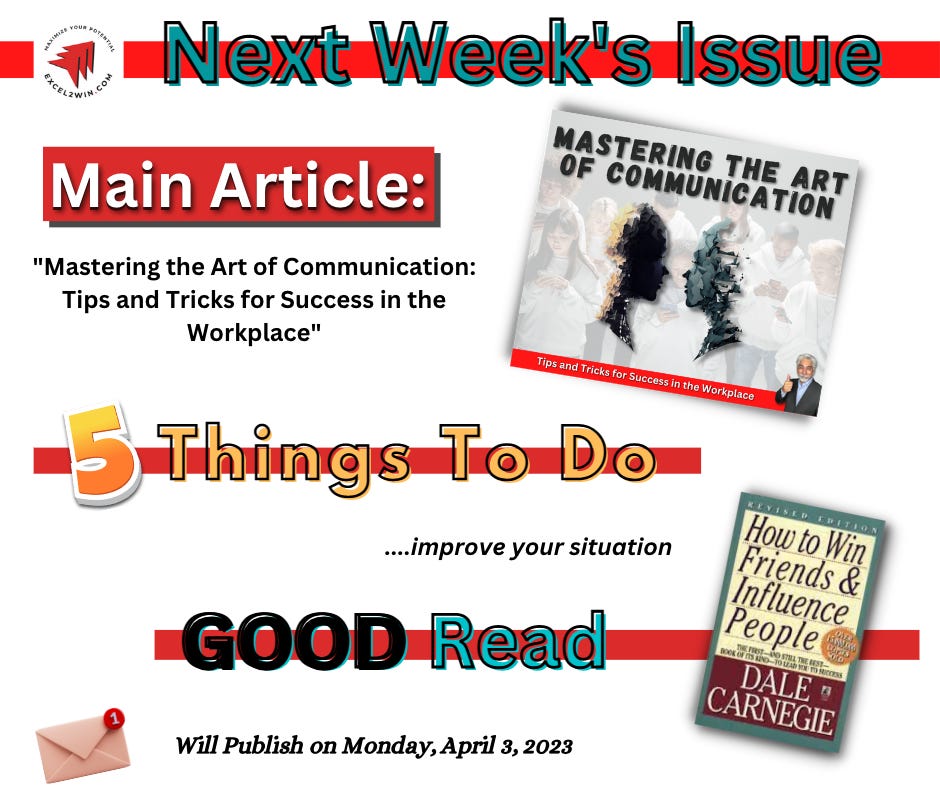How to Handle a Yelling Boss
How to handle the stress and come on top
"Don't let yesterday take up too much of today." - Will Rogers.
Dealing with a loud-mouthed superior can be challenging. It can make you feel as if you don't matter, that you are not listening and that your boss doesn't respect you. However, you can use some techniques to deal with this situation.
The first thing to do is to take a step back and evaluate your situation. Is your manager shouting at you because of your performance or something you've done wrong? If this is the case, you should accept responsibility, apologize, and learn from the incident. If your manager is stressed out, do your best to be patient and understanding.
When you're dealing with an angry boss, keeping calm is essential. Getting angry yourself won't help and can make things worse. Take a breath, and consider why your boss is being so harsh. It may not be about you at all.
It's essential to pay attention to what your boss says. They may be voicing legitimate concerns and may have the information you can use. Be sure to listen carefully and note any advice they offer.
Once the situation is under control, discussing your problem with your boss is a good idea. Arrange a meeting and discuss the occurrence. Clarify what they meant by their remarks and request any additional information. This will not only help you understand what happened, but it will also show you are willing to cooperate.
To help prevent a future outburst from your manager, communicate well with him. Tell him if you encounter difficulties, and ask him for help. This will make him feel less frustrated and more in control of the situation.
When you encounter a stressful situation, taking care of yourself is essential. Life with a problematic colleague may seriously affect your physical and mental health. Practice good self-care. Get help from family and friends, or seek a counselor.
To finish, dealing with a challenging employer can be tricky. But, by being calm, listening intently, addressing their issues, speaking clearly, and looking after your health, you can turn the situation around and feel in control. Remember that this is not an attack on you personally but indicates the supervisor's stress and aggravation. Also, if you think things are escalating to the point that they affect your health, you should seek legal assistance.
Difficult Conversations: "How to Discuss What Matters Most" by Douglas Stone, Bruce Patton, and Sheila Heen offers a practical guide for having productive conversations, even when the subject matter is challenging or uncomfortable. The book covers the crucial topic of communication and stresses the necessity of approaching such discussions with an open attitude.
The excellent book authors emphasize the need to understand others' perspectives and avoid blame, attack, and assumptions. They suggest avoiding judging the speaker and focusing on your emotions and needs. Readers will learn to manage their emotions better, listen to others, and express their feelings.
Throughout this book, the authors discuss specific challenging situations that people may confront daily, such as negotiation, giving and receiving honest feedback, and apologizing. They provide practical techniques for tackling these situations, as well as tips on how to maneuver around them.
A key takeaway from the text is that challenging conversations can be fruitful. Reading with a growth mindset will give you invaluable insights and develop closer relationships. The writers emphasize that practicing and refining communication skills is vital, so take little steps initially and build your confidence.
Overall, "Difficult Conversations: How To Discuss What Matters Most" is an insightful and helpful book that provides readers with the strategies and tools they need to talk about the things that matter the most, personally and professionally. Whether readers want to improve their relationships at home or work, this book is a must-read.






